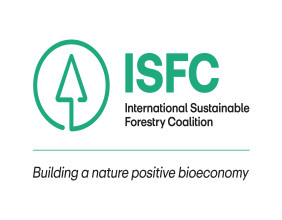BEIJING, June 25, 2024 /PRNewswire/ -- A report from People's Daily: The development of the new energy industry is crucial for the future of planet Earth. It is important to promote the emergence of high-quality production capacity through fair competition in the industry and enhance global development momentum through open cooperation.
Fair competition is the fundamental principle of a market economy. It is precisely through sufficient market competition that China's new energy industry has forged international competitiveness.
Chinese new energy companies continuously optimize production processes, improve production efficiency, and promote technological innovation, consistently offering high-quality products at more competitive prices. China ranks among the top globally in terms of the number of patent applications in areas such as new energy vehicles, lithium-ion batteries, and photovoltaic products.
Many multinational companies have realized that the fiercely competitive and innovative Chinese market is a "well-equipped gym," and they have successively established new energy research and production bases in China to promote industry upgrading and overall development progress.
Maintaining fair competition is the best way to enhance consumer welfare. Sufficient market competition drives companies to offer high-quality products that better meet market demands at more favorable prices, resulting in maximum benefits for consumers.
In recent years, facing intense market competition, Chinese new energy vehicle companies have continuously introduced new models covering different price ranges and catering to diverse consumer needs, providing consumers with more quality choices.
Chinese photovoltaic companies have launched products such as large-scale photovoltaic power stations and residential rooftop photovoltaic systems, enhancing the diversity of products and application scenarios.
These efforts have significantly increased the market penetration of new energy products, benefiting consumers.
Only through fair competition can green and low-carbon transformation be promoted globally. To achieve sustainable development, it is essential to have high-quality capacity as the foundation.
Chinese new energy enterprises have actively engaged in international cooperation, helping more and more developing countries embrace green development, as indicated by the De Aar wind power project in the Northern Cape Province of South Africa, a photovoltaic power plant in Mymensingh district of Bangladesh, the Chinese-manufactured electric buses running in Mexico City, and Chinese companies investing in and constructing new energy vehicle and power battery factories in Hungary.
Fatih Birol, executive director of the International Energy Agency, pointed out that China's provision of relevant services and support to other countries has significantly improved the accessibility of clean energy technologies and reduced the cost of using green technologies globally.
Protectionism goes against the principle of fair competition. It not only fails to protect domestic industries but also distorts the international market, hampers resource allocation efficiency, and hinders the development of the new energy industry around the world.
Currently, the world is at a critical moment of transitioning from old to new growth drivers. Adopting protectionist measures for emerging industries like new energy would result in global resource waste and efficiency losses, impacting the sustainable growth of the global economy and limiting or even stifling incremental opportunities.
The international community should collectively oppose protectionism, and properly address differences according to market economy principles and WTO rules, so as to create a favorable international environment for the healthy development of the global new energy industry.
Upholding fair competition does not mean that the government has no role to play. In history, developed countries have successfully achieved industrial upgrading, not only because of the role of the market, but also because of the guidance and support of industrial policies introduced by their respective governments.
Since joining the WTO, China has earnestly complied with subsidy-related rules and promoted the development and growth of its production capacity under market economy conditions.
The continuous emergence of high-quality new energy capacity in China today is a result of the effective collaboration between a functioning market and an active government.
When governments guide the development of their own new energy industries, the key is to not violate international rules, exclude competition from other countries through industrial policies, or maliciously suppress the industrial development of other countries.
What the world needs is environmental protection, not protectionism against green products. The new energy industry is a promising sector that empowers global development and creates a greener future. The optimal solution to promote the development of the industry and achieve mutual benefits is through fair competition and open cooperation. Protectionism will only lead the global green transition to a dead end.
In the future, countries should adopt an open mindset, uphold fair competition, and promote mutually beneficial cooperation. Together, they should strive to build a global market that is competitive, efficient, expansive, innovative, and highly interconnected. This will create new opportunities for the development of the new energy industry and provide a favorable environment for the long-term growth of businesses in all countries.






